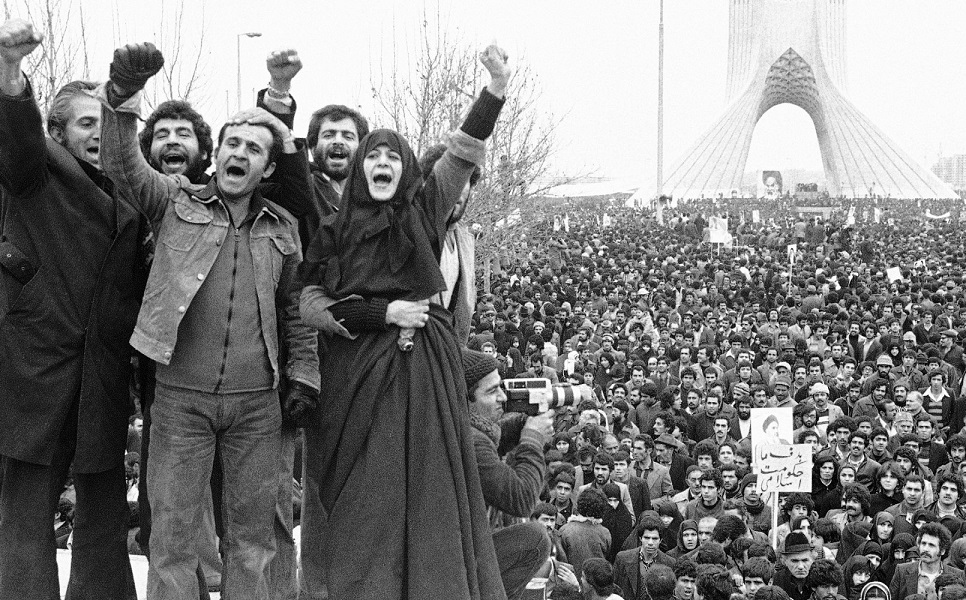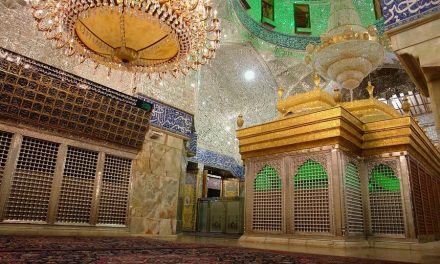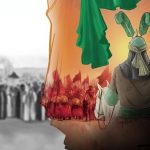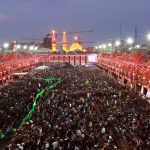
In an exclusive interview with Shia Followers, Kambiz Zarrabi, the author of In Zarathushtra’s Shadow and Necessary Illusion, said the success and longevity of the Islamic Revolution in Iran “have inspired other societies, Islamic or otherwise, to dare to rise up against exploitation, disenfranchisement and plunder by both foreign colonial powers, and by their own despotic, self-serving dictators who rule against the wishes and interests of the nation.”
Here’s the full transcript of the interview:
Mr. Zarrabi, what could you say about the Islamic Revolution of 1979? What factors led to the Revolution?
Kambiz Zarrabi: Critics of the Islamic Revolution always point to the fact that Iran under the pre-evolution years was witnessing an accelerating rate of economic and industrial developments, soon to rival and, in Shah’s own words, even surpass most European countries’ accomplishments.
Even discounting that exaggeration, there was no doubt about Iran’s industrial and infrastructural developments during its previous administration. But, all that came at a great cost to the Iranian nation as a whole: the nation’s traditional cultural values, pride and its very identity.
The political philosophy at the time was that a country strategically located in a sensitive part of the world, and with considerable hydrocarbon resources and mineral wealth, could not remain independent and neutral in a bipolar world. Therefore, it was argued that it would be best for Iran to fall into the fold with the so-called Free World, headed by the Unites States, rather than side with waning power of the Soviet Empire.
This philosophy led to the full Westernization of all aspects of Iranian culture and worldview. Iran’s financial and educational upper crust, most with Western education and connections, welcomed this trend, while the better than 90% remaining populations in small towns and villages throughout the country and those in the fringes of bigger cities remained politically disenfranchised and economically marginalized. The biggest victim of this “modernization” trend was religion, the one aspect of Iran’s cultural heritage that was shared and cherished by that ignored and forgotten 90%!
What role did Imam Khomeini play in the Revolution?
Kambiz Zarrabi: The decades’ long cultural, political and economic disparity outlined above needed a catalyst to explode into a grass-roots social uprising, and Ayatollah Khomeini was that catalyst in the flesh. The nation’s elite and well-connected, which included myself at the time, refused to believe that any scattered grass-roots uprising would be “allowed” to bloom into a full-scale revolution and the wholesale collapse of the regime’s power structure. However, the not-so-sophisticated masses were unaware of the presumed impossibility of their mission, and they carried on against all odds; and the paper tiger was blown away in the ensuing storm.
How did the Islamic Revolution affect the geopolitics of the Middle East?
Kambiz Zarrabi: Initially, the Western interests headed by the United States believed that it would be wise to go along with the current of events in Iran, and that the flood of the Islamic Revolution could be channeled in directions that would preserve their influence and their geopolitical interests in the country. Of the most important concerns were Iran’s hydrocarbon resources, among the world’s largest, and the country’s long standing barrier against the Soviet Union’s expansionistic ambitions. After all, it was thought, Islam and communistic “godlessness” were mutually exclusive ideologies.
This thesis proved wrong when Ayatollah Khomeini declared that Iran’s foreign policy stood on independence and the axiom of Neither West, Nor East.
Since its victory, how has the Revolution affected the Islamic political movements in the region and across the world?
Kambiz Zarrabi: Contrary to the massive propaganda efforts by the United States, basically on behest of Israel and now the Saudi regime, Iran has never sought to export its revolution elsewhere in the region. Its success and longevity, however, have inspired other societies, Islamic or otherwise, to dare to rise up against exploitation, disenfranchisement and plunder by both foreign colonial powers, and by their own despotic, self-serving dictators who rule against the wishes and interests of the nation. Interestingly enough, practically all Islamic states that have thus been inspired or “awakened” are of the Sunni Islamic sect, whether in North Africa or the Middle East, with perhaps the only Shia exception being the Yemeni Houthis.
For decades, various U.S. administrations have opposed the Islamic Revolution and its impact. Is the Trump administration doing the same?
Kambiz Zarrabi: Let us keep in mind that American administrations, both the Legislative and the Administrative branches, and that includes the President as the Chief Executive, have been for decades under the influence, if not the command, of the Zionist lobbies; and Mr. Trump, as politically clueless and incompetent as he is, is a perfect example of this trend. The result of this pervasive and unrelenting influence has been that successive American administrations have always sided with Israel even against America’s own best interests.
The chants repeated often in political demonstrations in Iran always include “Death to Israel” with “Death to America”. Two things should be noted here: First, the Persian phrase “Marg-bar-……” should be translated as “Down With……” and not the literal translation of “Death to….” Second, Iranians from all walks of life know that the American government is responsible for irresponsible, inhuman, and even illegal (under international law) treatment of the Iranian people is acting only on behalf of Israel. As a result we often see and hear demonstrators in Iranian cities expressing “Down with the American regime; Long Live the American Nation.”
Kambiz Zarrabi is the author of In Zarathushtra’s Shadow and Necessary Illusion. He has conducted lectures and seminars on international affairs, particularly in relation to Iran, with focus on US/Iran issues. Zarrabi’s latest book is Iran, Back in Context.










